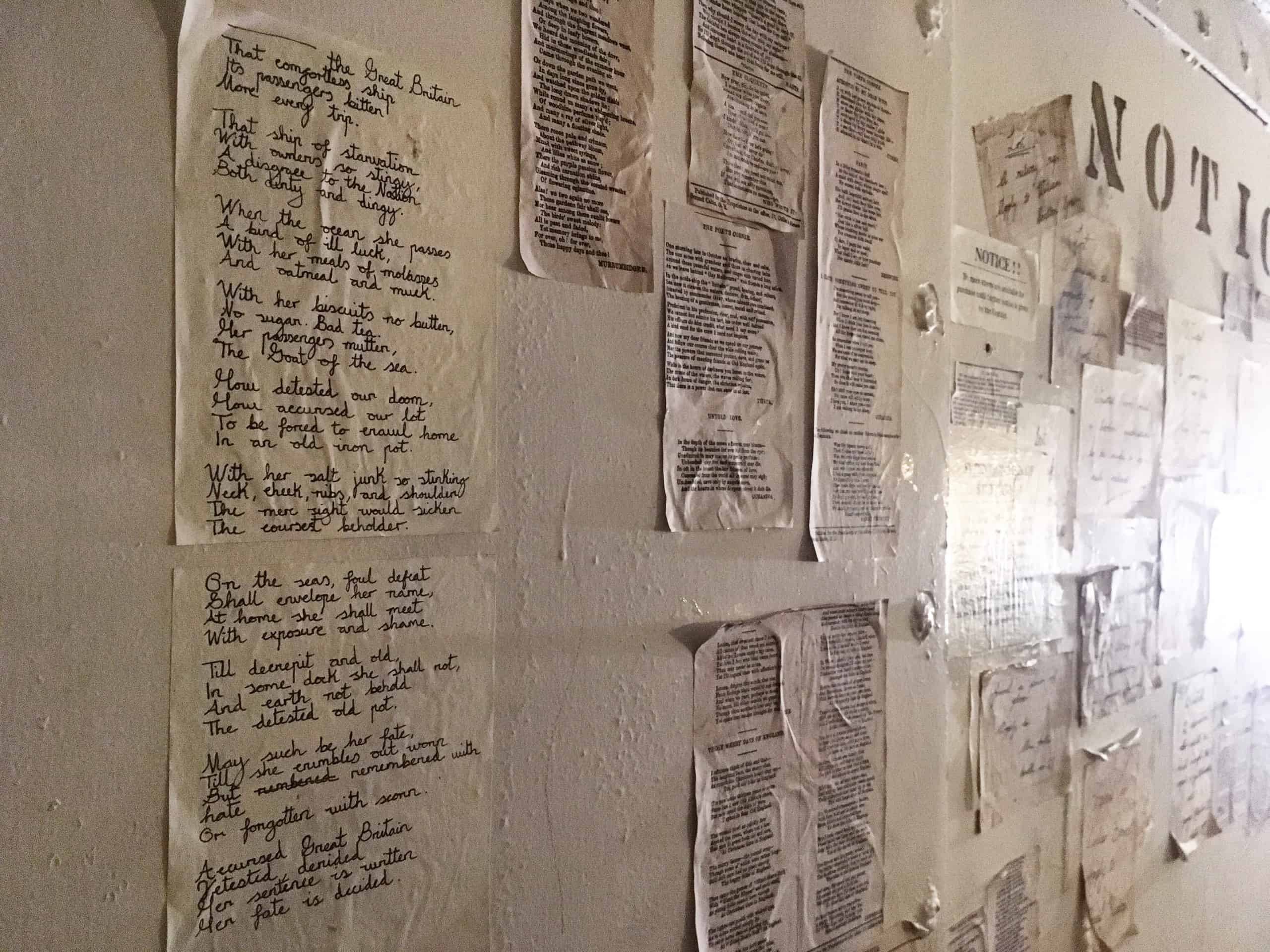- This poem was originally handwritten by an unknown passenger and put up in the main gangway of the SS Great Britain on the voyage from Melbourne to Liverpool in 1854.
- A fellow passenger, John Henry Chatterton copied the poem into his diary before it was “torn down by the Officers of the ship”. The original diary is now part of the Australian Joint Copying Project at the National Library of Australia, Canberra, and we have a transcript (typed copy) of the diary in our collection in the Brunel Institute.
- The poem lists complaints about the quality of provisions for steerage passengers on the voyage. One of their main issues was with the poor quality of bread they were being given, they wanted fresh bread rather than ship’s biscuits. The passengers had formed their own committee as they tried to improve the conditions and quality of food in their part of the ship.
- It is not very complimentary about the SS Great Britain, describing it as “comfortless”. The ship was sometimes described as ‘greyhound of the seas’, due to the smooth and fast passage it provided – perhaps the reference to “the goat of the sea” is an attempt to undermine this reputation.
- However, the poem seems to have done the trick, and a few days after it was put up, Chatterton wrote that “our provisions have materially improved both in quantity and quality”.
The Story
Not always ship shape
With voyages to Australia on the SS Great Britain lasting on average 60 days and with up to 700 passengers on board, complaints like those listed in the poem were common.
The bread given to passengers was not just a problem on John Henry Chatterton’s voyage. Over ten years later passenger Francis Dell wrote in his diary that “we can’t at all stomach the biscuits. Dreadful hard takes half an hour to eat one”. During an earlier voyage in 1852, passenger Edward Towle complained in his diary that the cook had accidently made the tea with saltwater and that the drink had been promptly poured overboard!
The quality of the food and drink wasn’t the only issue that the passengers of the SS Great Britain complained about. The movement of the ship was another cause of complaints, with one passenger Job Welling in 1875 writing that “The old ship keeps up a fearful rolling from side to side, has scarcely been steady a minute since Thursday evening”. Other passengers grumbled about the ship being dirty, smelly and about water occasionally coming in through the portholes. During the journey to Australia, the ship passed through different climates and passengers often wrote about either being too hot or too cold depending on where they were on the voyage.
Unsurprisingly, boredom during the long voyages was often mentioned in diaries and letters. Annie Henning wrote in her diary that “People are bored now. The first couple of days there were dancing and music in every corner of the ship. Now it only happens occasionally”. Perhaps this boredom played a part in the fact that arguments were common and sometimes fights would break out amongst passengers. It was not uncommon for the captain to stop the passengers’ daily alcohol allowance to calm situations and prevent further fighting. But this of course led to more complaints – a vicious circle!



